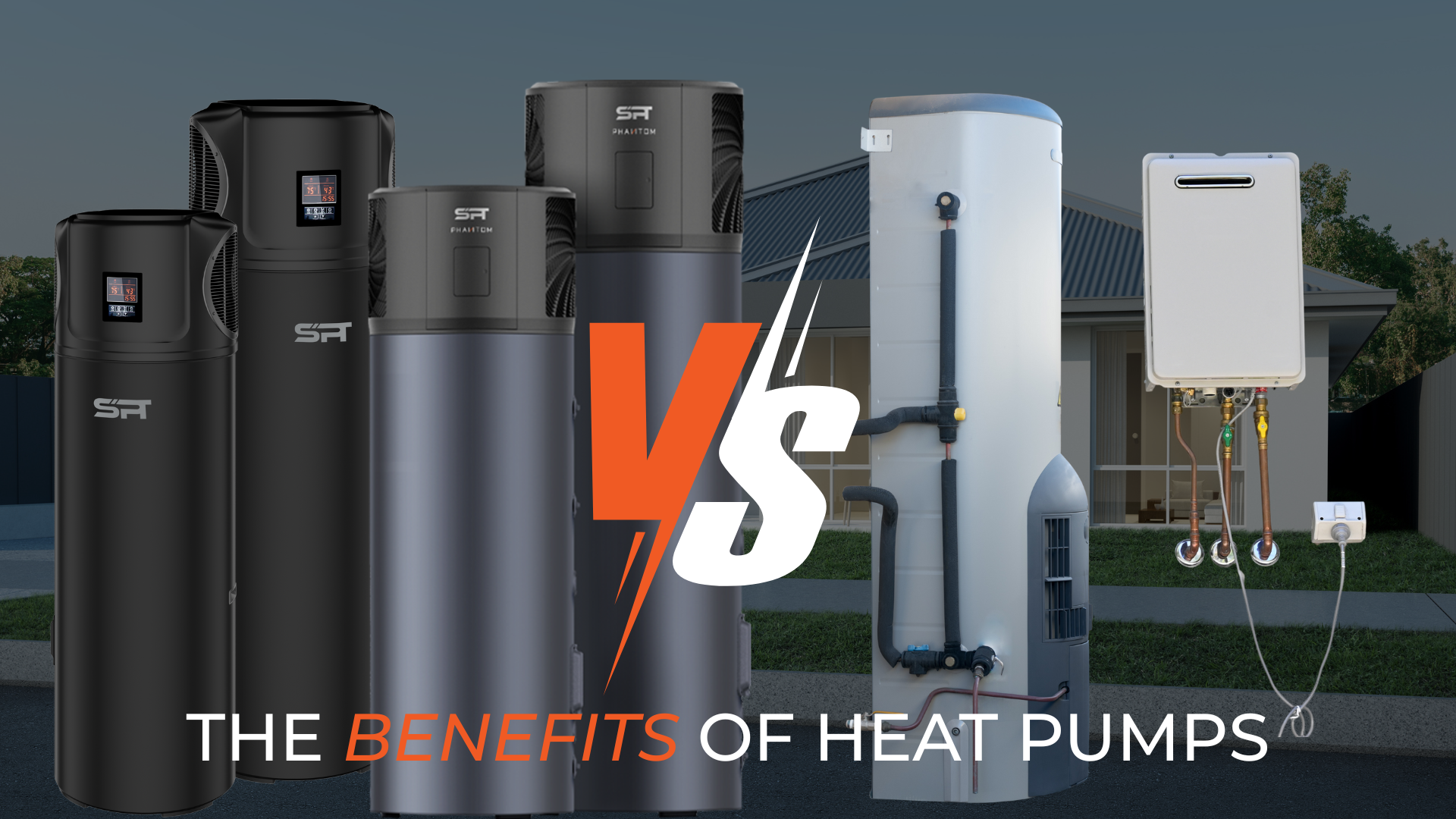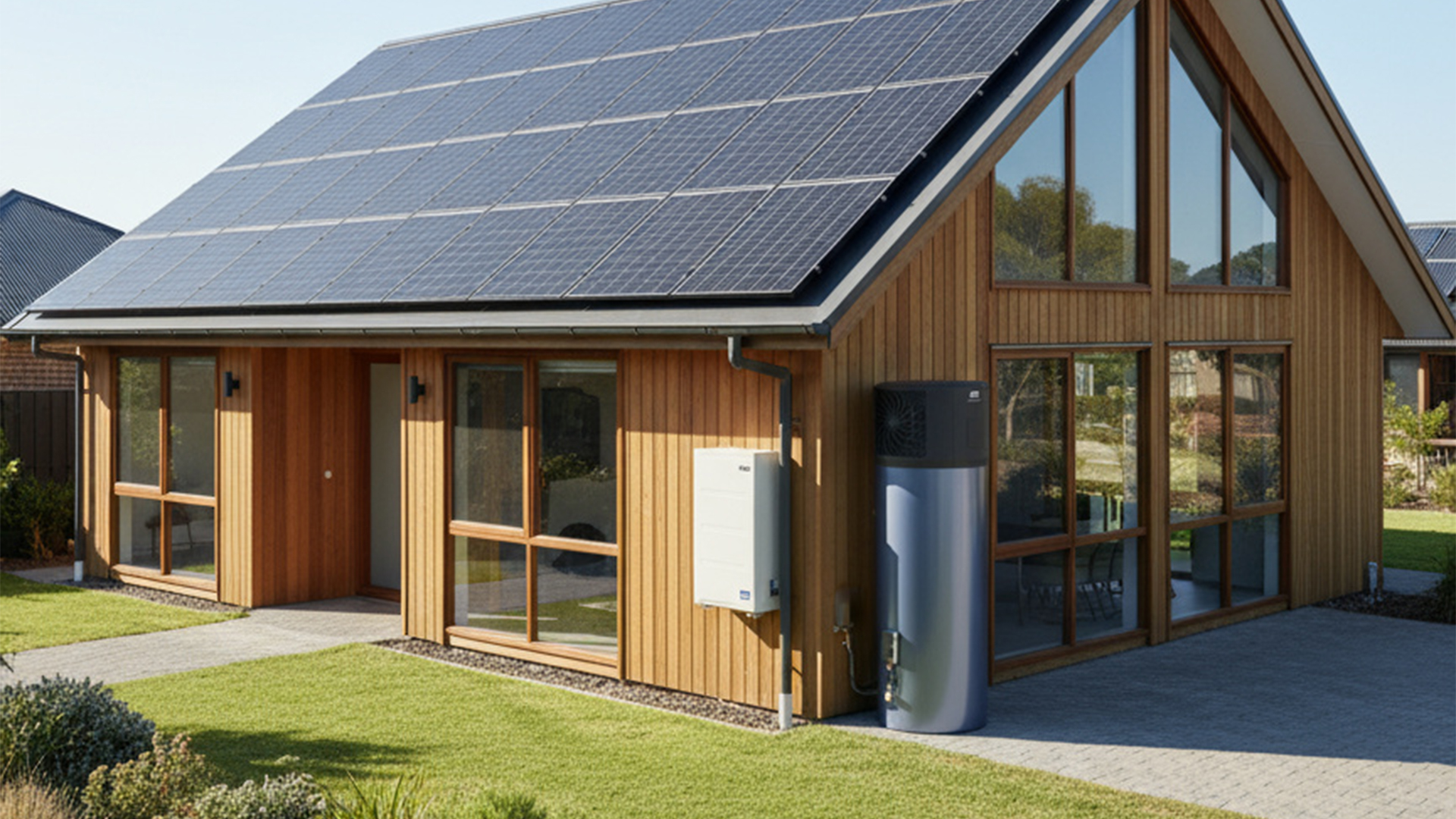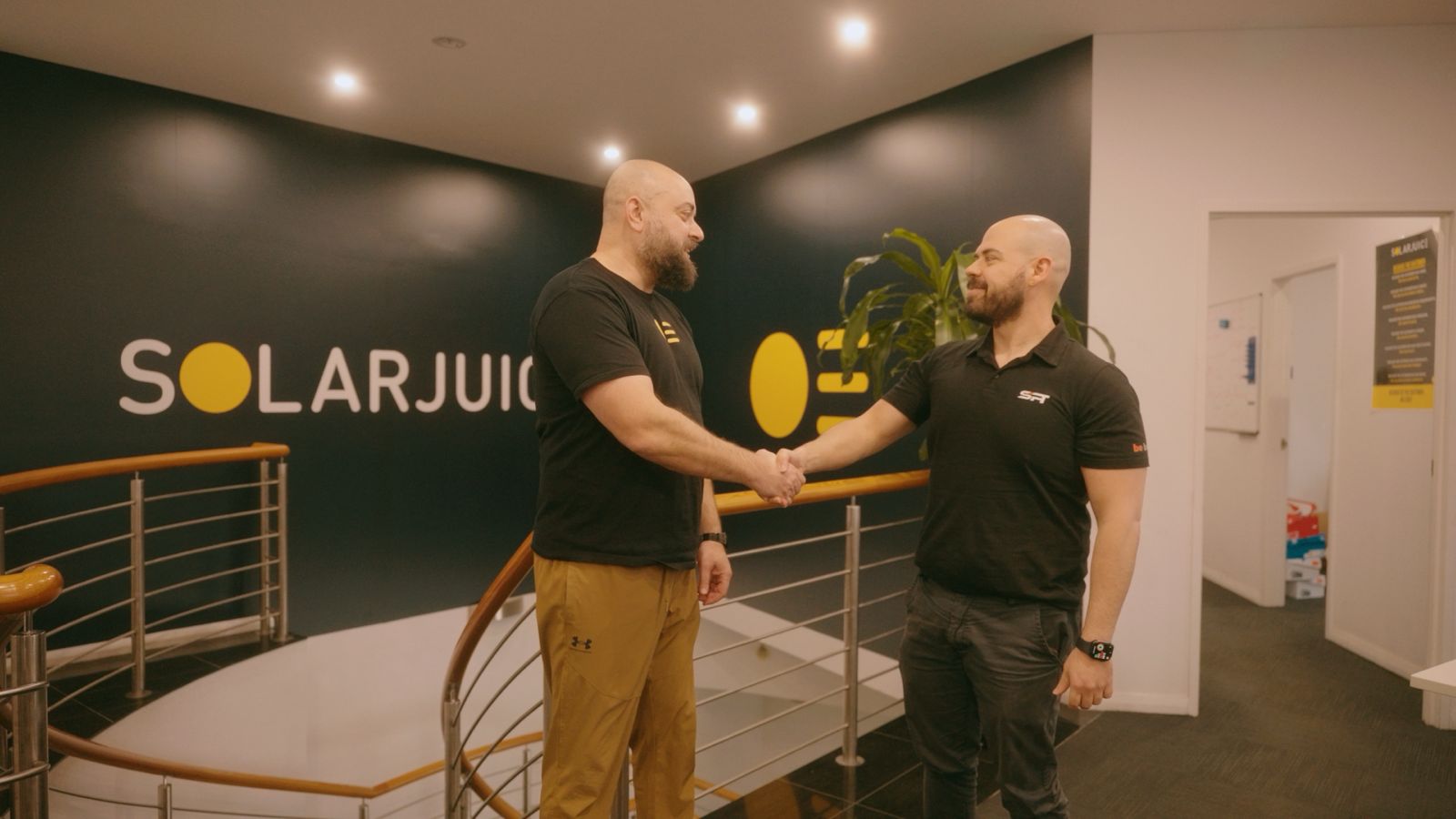When it comes to heating water in your home, there are a few common options available in Australia. Most people choose between heat pumps, gas instantaneous systems, or electric storage systems. While each method has its own benefits, heat pumps are quickly becoming the preferred choice for those who want to reduce energy bills and support a more sustainable future.
To help you understand why, let’s explore how each system works, the technology behind them, and why heat pumps are so efficient.
To begin with, let’s take a closer look at how heat pumps actually function.
A heat pump doesn’t generate heat the same way an electric or gas system does. Instead, it moves heat from one place to another, much like how a refrigerator works in reverse. This approach allows it to heat water using much less energy.
Here’s how the process works, step by step:
- First, a fan draws in air from the outside environment. Surprisingly, even cold air contains some heat energy. Next, this air passes over an evaporator coil containing a special refrigerant. This refrigerant absorbs the heat, causing it to change from a liquid into a gas.
- After that, the gas moves into a compressor. The compressor squeezes the gas, which raises its temperature significantly. Then, this now-hot gas flows through a heat exchanger, which transfers the heat to the water stored in your tank.
- Once the heat is transferred, the refrigerant cools down, turns back into a liquid, and the cycle begins again.
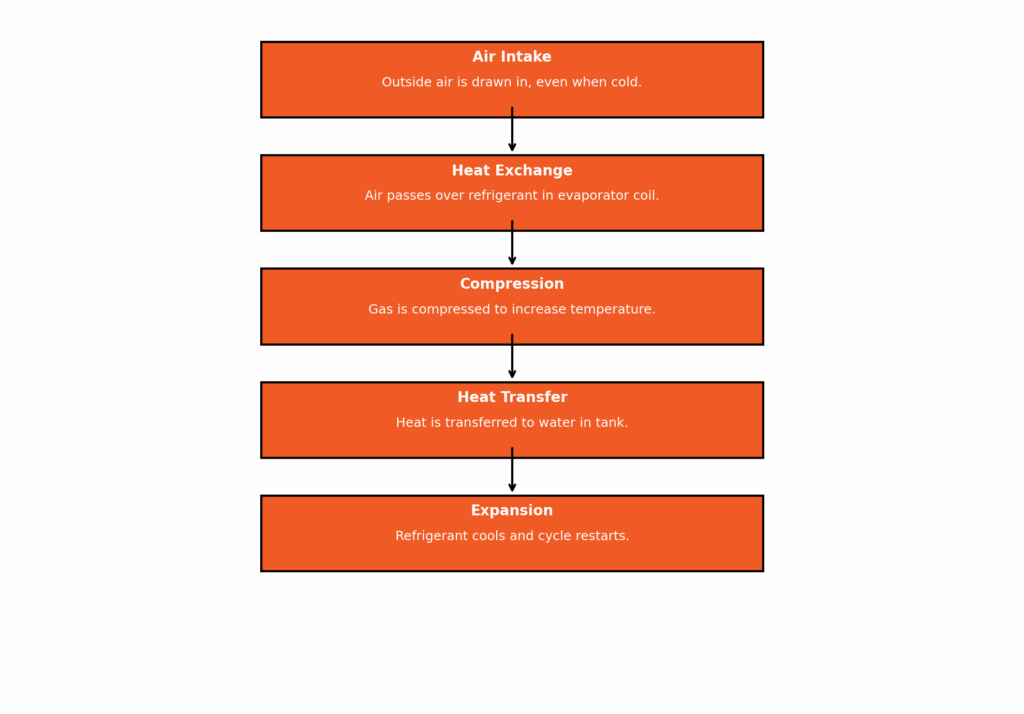
Because the system relies on transferring heat rather than generating it directly, it consumes much less electricity. This is one of the key reasons heat pumps are so efficient. According to the Australian Government’s Energy Rating site, heat pumps can use up to 75% less energy than traditional electric storage systems.
Now, let’s compare this to how gas instantaneous systems operate.
When you turn on a hot tap in a home with a gas instantaneous system, cold water flows through a pipe that’s wrapped around a heat exchanger. As soon as the flow is detected, a gas burner ignites and begins heating the water directly as it passes through the pipe. Once heated, the water is delivered straight to your tap.
These systems are compact and can provide continuous hot water. However, they rely on burning fossil fuels, which results in carbon emissions. In addition, some energy is lost during the ignition and combustion process, making them less efficient than heat pumps.
Next, consider how electric storage hot water systems work.
These have been common in Australian homes for decades and operate on a very straightforward principle.
Water is stored in a large, insulated tank. Inside the tank, an electric element heats the water to a set temperature. Throughout the day, the system regularly switches the element on and off to maintain that temperature, even when you’re not using hot water. The Australian Government’s YourHome guide confirms that electric storage systems are often the most expensive to run and produce higher greenhouse gas emissions compared to other technologies.
While this might sound convenient, the downside is that heating water directly with electricity is very energy intensive. As a result, running costs can be quite high, especially during peak electricity pricing periods.
To better understand why heat pumps are more efficient.
It’s helpful to introduce the concept of COP, or Coefficient of Performance.
Put simply, the COP tells you how much heat energy you get out of a system for every unit of electricity you put in.
For example, most traditional electric systems have a COP of 1. That means 1 kilowatt of electricity produces 1 kilowatt of heat. Gas systems typically range from 0.6 to 0.9, due to heat losses during combustion.
In contrast, a heat pump can have a COP between 3 and 6. This means for every unit of electricity it consumes, it delivers 3 to 6 units of heat. In practical terms, that’s up to 75 percent less electricity needed for the same outcome.
This efficiency not only lowers your energy bill but also significantly reduces your household’s carbon footprint.
Want to learn more about our Heat Pumps? Follow the links below:
Dark Knight – Here
Phantom – Here
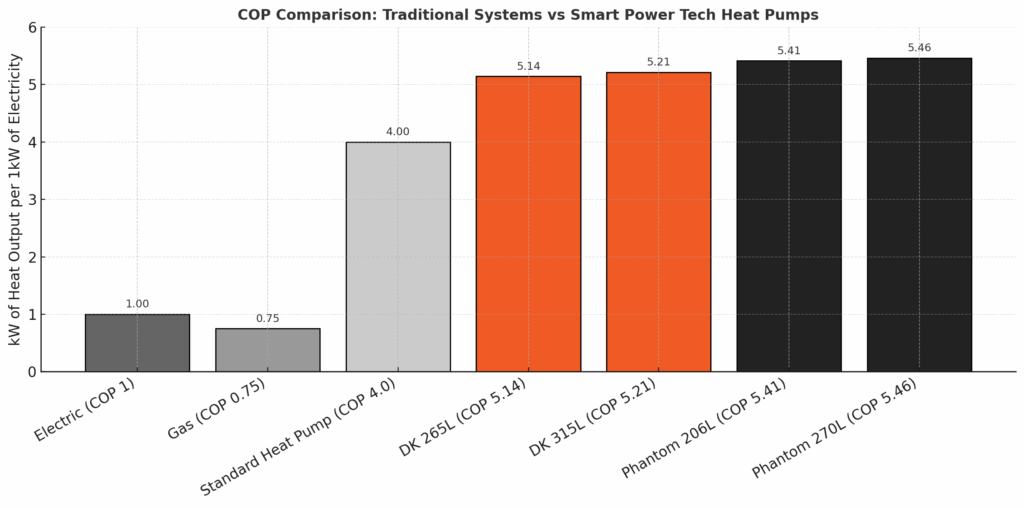
So, what does this mean for you as a homeowner?
If you’re currently using a gas or electric storage hot water system, switching to a heat pump could help you save money, reduce energy use, and support a more sustainable future. Modern heat pump systems are designed to work efficiently in a wide range of climates and often come with intelligent features to help manage energy usage more effectively.
At Smart Power Tech, we’ve committed to providing high-performance, Australian-designed heat pump systems that prioritise both comfort and environmental impact. Our products are eligible for major rebate programs, and we stand behind our technology with advanced engineering, strong customer support, and a dedication to quality.
Ultimately, when you consider the benefits, the choice becomes clear. Heat pumps offer a smarter, more energy-efficient way to heat your water, without compromising on performance or comfort.
